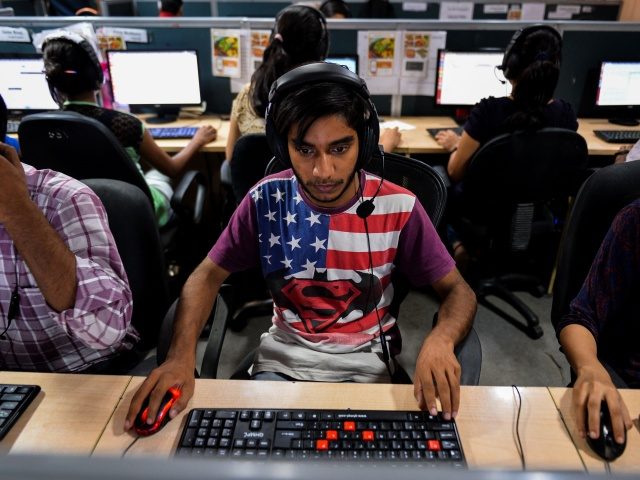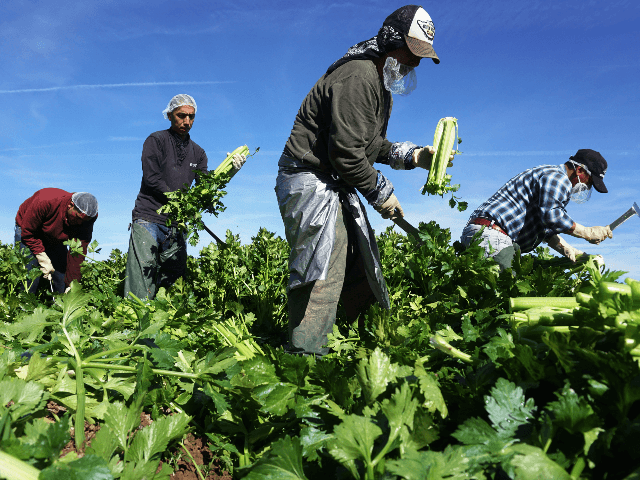Sheltering H-1B 'Temporary' Workers at the Expense of American Workers in the Time of Covid-19
Consider these factoids in chronological succession:
- In mid-August, the Department of Homeland Security (DHS) ran a second H-1B visa lottery for the year despite, as my colleague David North noted, a lack of interest.
- On September 25, Law360 (partially behind a paywall) reported that the Department of Labor (DOL) had freed up $150 million from H-1B user fees to support a program to train American workers due to a "critical shortage of skilled workers" allegedly brought on by the Trump administration's "ban" on the importation of H-1B workers (which still amounts to a total of 85,000 visas, and therefore jobs, that DHS has shown itself determined to give away, despite the administration's emphasis on "hiring American").
- On September 30, Disney Corporation announced that it is laying off 28,000 workers from its theme parks due to the disastrous Covid pandemic we are still living through.
The import of DHS's unnecessary August lottery is that a whole host of H-1B visas will be granted to foreigners to come and work in the United States even though the economy is still suffering and unemployment rates are still disturbingly high.
Conversely, DOL can at least be said to be trying to do something to ease the plight of disenfranchised American workers by apportioning funds toward training programs — although there is reason enough to question whether there actually is a "critical shortage", given the lack of interest in the initial H-1B lottery and the massive layoffs at employers such as Disney. There's also plenty of reason to doubt exactly how "skilled" many H-1B recipients are: Once again, thanks to North, we know that significant numbers of these individuals come from distinctly lackluster institutions of learning, not just from the American university system, but also within the hierarchy of their own countries.
Finally, there is the matter of the massive layoffs at Disney (and Carnival Cruise Lines and Sea World and other theme parks before it). Two-thirds of those laid off are part-time workers, presumably less-skilled; but since the layoffs are hitting workers "at all levels", one wonders, how many of those laid off will be H-1B workers — who tend to work for lower wages than comparable American workers — and how many will be Americans who forfeit their jobs while the H-1Bs go unscathed? Past history suggests that Disney will go straight for the jugular and dump the Americans and keep the foreign workers. In this, they're not alone; it is a pattern often repeated in the corporate world. It would have been nice for Disney (or any of the others) to make an affirmative statement about doing all it can to protect American jobs despite the need for layoffs. That it didn't is pretty suggestive that history will repeat itself.
Collectively, the juxtaposition of these three things is enough to make one's head spin and wonder if anyone at all is in charge of strategic thinking in our federal government's bureaucracies, where foreign workers vs. American jobs are concerned, or whether we are floating along rudderless.
And where is Congress? Should there not be sane statutory provisions regarding who gets pink-slipped at a time of massive layoffs? And should those provisions not be protecting American employees instead of permitting them to be sacrificed in favor of so-called "temporary" foreign workers?
Report: 37K Americans Have their Jobs Outsourced in Middle of Pandemic

In the middle of the Chinese coronavirus crisis, about 37,000 Americans were notified that their jobs would be sent overseas in outsourcing schemes by corporations, a report reveals.
Analysis by the Guardian reviewed data from the Trade Adjustment Assistance (TAA) program that certifies when American jobs are lost due to free trade. The review finds that from March 15 to July 31, at the height of the pandemic, about 37,000 American workers had their jobs outsourced to foreign countries.
In one outsourcing scheme by Bed, Bath, & Beyond, the retail corporation shut down a call center in Layton, Utah, where nearly 300 Americans had their jobs outsourced to the Philippines. One of the workers who spoke with the Guardian said she and her coworkers had to train their foreign replacements:
“They actually tricked people into training these other people. The way they worded it was they’re bringing the contractor to help out with the overflow. I was never told in any form I was training people to take my job,” said a laid-off call center employee who requested to remain anonymous due to a confidentiality agreement. [Emphasis added]
“For them to make the change with the layoffs, when they did, was the biggest slap in the face for employees. There was no need to do it in the middle of a pandemic.” [Emphasis added]
Outsourcing Americans’ jobs to imported H-1B foreign visa workers is often the first step by corporations in their plans to fully offshore their production and business services.
Every year, more than 100,000 foreign workers are brought to the U.S. on the H-1B visa and are allowed to stay for up to six years. There are about 650,000 H-1B visa foreign workers in the U.S. at any given moment. Americans are often laid off in the process and forced to train their foreign replacements, as highlighted by Breitbart News.
More than 85,000 Americans annually potentially lose their jobs to foreign labor through the H-1B visa program.
Similar outsourcing schemes occurred in the middle of the pandemic with the men’s fashion retailer Brooks Brothers, where the firm shuttered three of its American clothing factories in July and laid off up to 700 American workers.
In Buffalo, New York, more than 400 American workers are seeing their manufacturing jobs with Panasonic outsourced to Malaysia. Likewise, 610 American workers with Asarco, a firm with plants in Hayden, Arizona, and Amarillo, Texas, are having their jobs shipped to Mexico.
At Bedford, Virginia’s Winoa USA, an abrasives supplier, nearly 40 American workers saw their jobs shipped to Canada and France when the company shuttered their plant in June.
In August, General Electric (GE) workers in upstate New York pleaded with President Donald Trump to intervene in their corporation’s outsourcing scheme that will send American jobs to Poland. Their plea came after Trump reversed the outsourcing of American jobs at the federally-owned Tennessee Valley Authority (TVA) where workers were in the process of training their imported H-1B foreign visa replacements.
John Binder is a reporter for Breitbart News. Follow him on Twitter at @JxhnBinder.
Agriculture Department Drops Wage Floor in H-2A Farmworker Program

Agriculture department officials have announced they will not conduct a routine annual survey on wages in the farm sector, likely helping agriculture employers to suppress wages for the expected supply of 230,000 H-2A workers in 2021.
The decision by former Gov. Sonny Perdue’s Department of Agriculture was slammed by the left and the right as bad for Americans and for the H-2A migrant workers.
“This seems like an ill-advised move during such difficult economic times, and far too many U.S. workers have had to endure pay cuts and job losses,” said Jessica Vaughan, policy director at the Center for Immigration Studies. She continued:
Sadly, it’s not a surprise, as Trump’s agriculture officials are practically lobbyists for the farm employers, always looking to implement policies that lower the cost of farm labor, especially by keeping the pipeline of farm visa workers as large as possible. It’s not going to serve the President very well in this hotly contested election.
“This action will have the consequence of lowering [American] farmworker wages,” said Giev Kashkooli, the political & legislative director at the United Farm Workers union. He continued:
The current law allows [agriculture employers] to bring in an unlimited number of people on the H-2A [visa] program. The protection for U.S. … workers is that the employer is required to pay [the foreign] workers in the H-2A program the average wage that farmworkers in the United States are receiving by region. So that term, “Adverse Effect Wage Rate” really should just be called the average wage. But it’s called “adverse effect” because its purpose is to not have an adverse effect on U.S. citizens and legal permanent residents.
So that’s what the compromise was under President [Ronald] Reagan and has existed till now: ‘You can bring in as many [H-2A] people as you want, as long as you’re paying people the [AEWR] average wage.’
In 2019, agriculture employers imported up to 230,000 H-2A workers and paid them at the various AEWR rates, which rose by an average of six percent and reached up to $15 per hour. That wage-level protected Americans from long jobs or wages to H-2A workers, and also pressured employers to invest in labor-saving, wage-boosting machinery.
But Perdue is blocking the AEWR survey for 2021 so that employers can pay the H-2A workers at rates set by the employers’ flawed surveys, Kashkooli argued. The wage rates will be skewed downward by the arrival of more H-2A workers, creating a cycle of shrinking wages and underpaid H-2A workers, he argued.
“The Trump administration is proposing that you can bring in as many people you want, but you can do it at minimum wage,” Kashkooli said.
The Agricultural Labor Survey is used to set the AEWR wage rates. It is conducted by the National Agricultural Statistics Service (NASS). A department statement said the “USDA has determined that the public can access other data sources for the data collected in the Agricultural Labor Survey.”
The department declined Breitbart’s request for information about how the AEWR wages can be set.
Agricultural employers say they are under intense economic pressure from each other and from increasingly sophisticated foreign suppliers. The foreign farms are using very cheap labor, plus improving technology, skilled managers, low-cost transportation, and free-trade deals to win larger shares of U.S. food sales.
The American Farm Bureau Federation is touting the department’s decision to drop the survey, according to Agri-pulse.com:
The Labor Department uses the NASS wage survey to set the annual state wage minimums, known as the Adverse Effect Wage Rate, or AEWR, for H-2A workers. This year, the rates went up 6% nationally, with farmers in some states seeing increases of up to 10%.
…
Veronica Nigh, an economist with the American Farm Bureau Federation, called the USDA move “a step in the right direction to ensure the wage setting mechanism for H-2A workers does not encompass flawed data that disproportionately penalizes farmers who rely on guest workers.”
She said, “Nothing in this announcement states an intent to lower wages for domestic and foreign workers.”
The left-wing and the right-wing activists jointly criticized the agriculture department — but they differ over the impact of imported labor.
“What is surprising is that the farmworker advocates have abandoned their historic support for tighter controls on farmworker visas,” said Vaughan:
If they put their energies into fighting against the mass importation of foreign farmworkers and against illegal immigration, they would help instigate movement toward a more modern farm industry that relies more heavily on mechanization and technology and creates better, higher-paying farm jobs.
Instead, they’ve chosen to embrace a never-ending labor surplus fueled by foreign labor that ensures that keeps their wages low and gives the employers the upper hand.
Congress has repeatedly approved — but not passed — bills that would dramatically raise the inflow of cheap labor into farmworker jobs.
Under Trump, the reduced inflow of legal refugees and illegal migrants have nudged up food-industry wages. In turn, the rising labor price prompted farm companies to invest in lab0r-saving, wealth-creating machinery for a wide range of delicate and skilled tasks, including meat processing, cow-milking, and fruit picking:
No comments:
Post a Comment